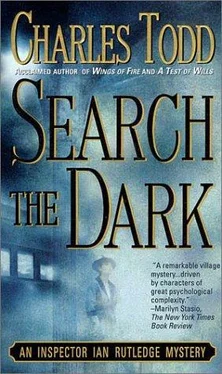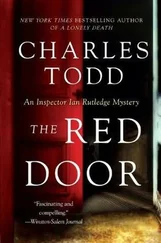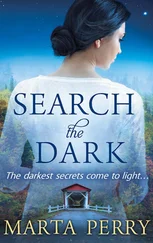Charles Todd - Search the Dark
Здесь есть возможность читать онлайн «Charles Todd - Search the Dark» весь текст электронной книги совершенно бесплатно (целиком полную версию без сокращений). В некоторых случаях можно слушать аудио, скачать через торрент в формате fb2 и присутствует краткое содержание. Жанр: Полицейский детектив, на английском языке. Описание произведения, (предисловие) а так же отзывы посетителей доступны на портале библиотеки ЛибКат.
- Название:Search the Dark
- Автор:
- Жанр:
- Год:неизвестен
- ISBN:нет данных
- Рейтинг книги:3 / 5. Голосов: 1
-
Избранное:Добавить в избранное
- Отзывы:
-
Ваша оценка:
- 60
- 1
- 2
- 3
- 4
- 5
Search the Dark: краткое содержание, описание и аннотация
Предлагаем к чтению аннотацию, описание, краткое содержание или предисловие (зависит от того, что написал сам автор книги «Search the Dark»). Если вы не нашли необходимую информацию о книге — напишите в комментариях, мы постараемся отыскать её.
Search the Dark — читать онлайн бесплатно полную книгу (весь текст) целиком
Ниже представлен текст книги, разбитый по страницам. Система сохранения места последней прочитанной страницы, позволяет с удобством читать онлайн бесплатно книгу «Search the Dark», без необходимости каждый раз заново искать на чём Вы остановились. Поставьте закладку, и сможете в любой момент перейти на страницу, на которой закончили чтение.
Интервал:
Закладка:
“Thank you for being so frank,” Rutledge said, preparing to walk on into the police station.
Johnston seemed to realize how hopeless he himself thought the evidence was. He summoned a smile and added, “Early days yet, of course! Early days!” But there was a hollowness in the words and the smile.
Rutledge watched him move on down the street, then opened the door of the station, finding himself in a scene of turmoil. There were some half a dozen people crammed into a room meant to hold two at best, and the sudden sense of claustrophobia that swept over him was so fierce he drew in his breath with the shock of it.
Someone looked up, a constable, and said sharply, “What is it you want?”
“Rutledge, from London,” he managed to say, but it came out harshly. Everyone in the room turned to stare at him, making the sense of suffocation worse. He could feel the knob on the door behind him jammed into his back.
“Ah!” the constable replied noncommittally. “Come this way, sir, if you please.” He led Rutledge through the anarchy and into a dark, stuffy hall that smelled of cabbage and dust. “That’s the leaders of the next search parties,” he said over his shoulder. “We’ve not found the others-the man or the children.”
Rutledge didn’t answer. They reached a door painted brown, and the constable knocked, then turned the knob.
The room beyond was bright with late sun, and a long pair of windows stood wide, looking out into a small courtyard overgrown with weeds. Although the windows provided little air movement, they gave the sense of openness he badly needed-an escape into light and freedom. Hamish, in the back of his mind, sighed with a relief as great as his own.
“Inspector Rutledge, Inspector Hildebrand. If you’ll excuse me, sir…?” The constable left the end of his request dangling in the silence as he retreated, closing the door softly behind him.
Hildebrand looked Rutledge up and down. “They said they were sending an experienced man.”
“I was with the Yard before the war,” Rutledge replied.
“But away through the better part of it,” Hildebrand finished for him. He himself was white-haired, with a youngish face. Rutledge put his age at not more than forty-five. “Ah, well. Sit down, man! Here’s what we have. Murder victim presumed to be Mrs. Mary Sandra Mowbray, of London. Matches the general description of the late Mrs. Mowbray, or I should say, presumed late. Even Londoners can’t die twice, can they? In his wallet Mr. Mowbray had a photograph of her with the children, taken in 1915, just before he was shipped over to France. We’ve had copies made to circulate. So far nothing’s come of it.” He tossed a file across the cluttered desk, and Rutledge found himself looking down at a faded photograph of a woman facing the camera and the sun at the same time, squinting a little. She was wearing a floral print dress and a single strand of pearls. Her hair seemed dark blond or a light brown, the way the sun caught it. Her face was oval and pretty, with fine bones and a distinct look of breeding handed down from some remote ancestor. The children by her side were a little clearer. The boy was no more than two, wearing a sailor suit and a hat that had fallen to a rakish angle over one eye. He grinned, squinting, while his hands clutched a ball nearly as large as he was. The little girl, not as childishly plump, had the same fairness as the mother. She could have been a large four or a small five, judging from the shy smile that showed all of her front baby teeth quite clearly. Her hand clutched her mother’s skirts, and her head was tilted in a way that promised a sweet nature rather than a rowdy one as she peered up through her lashes with no hint of roguishness.
When Rutledge had scanned the faces, he saw that the file also included official copies from London of a marriage license in the name of Mary Sandra Marsh and Albert Arthur Mowbray, a pair of birth certificates for the children, and the death certificates for all three. Signed in a scrawl by a London doctor. “Severe injuries from falling debris” they all read, and the autopsy had gone on to catalog them.
“Sad business,” Hildebrand said after a moment. “Young woman with a husband over in France. Lonely. Probably told the poor devil she took up with that he was dead. Well, it wasn’t altogether a lie, was it? So many of them did die. Only not her husband. He lived to come home, didn’t he? Must have been one of her worst nightmares, the chance of running into him some day! And as luck would have it, he goes from London to the coast in search of work, and there she is, standing in the station at Singleton Magna. Plain as day!”
“You think she saw him? Leaning out the train window?” Rutledge asked, reading down the statements of a conductor and several witnesses, one of them a farmer’s wife and her sister, the other two stokers returning to their ship.
“Stands to reason, I’d say. Explains why the four of ’em left town in such haste. Not a glimpse of them anywhere! One or two possible sightings of her at the station, probably before Mowbray spied her. After that, she was covering her tracks for dear life. I asked around myself, didn’t leave that to my men.”
“Very proper,” Rutledge said absently, rereading one of the statements. “Still, we have only Mowbray’s word that this was his wife and family.”
“As to that, I checked with London,” Hildebrand said with satisfaction. “There were quite a few casualties the night Mrs. Mowbray’s street was bombed. Constable Tedley identified her and the children. They were in the stairwell of the block of flats where she lived. And she didn’t show up later to prove him wrong, did she? And no one came round looking for someone who should have been alive, did they? Straightforward, as far as London was concerned.”
Rutledge nodded and handed the statements back to Hildebrand. Then he asked, “How did Mowbray catch up to her later? Has he told you?”
“Man’s in no case to talk. Deep depression, according to the doctor. Just sits there, staring at the floor, face drained of emotion. Stands to reason,” he said again, as if he used the expression often. “Wife died twice, didn’t she? Once when he was told she’d been killed by the Zeppelins and now by his own hand. Shock. That’s what it is. I daresay any of us would feel much the same. Not that it explains or excuses, of course. But you can see how it would happen.”
Shock. It was something Rutledge understood very well In a different voice he asked, “What weapon did he use?”
“Now that’s an interesting question. Blunt force to batter her face in, which means anything from a heavy stone to a tool of some sort. We examined the tools Mowbray had with him. Hammers, screwdrivers, a pair of saws, a level, that sort of thing. No blood or hair on any of them. Which says to me he got rid of whatever it was. I’d guess it’s where he left the other corpses.”
“And the wounds? Where were they?”
“In the face, mostly. Repeated blows, eight or ten, the doctor says. But there’re marks on her neck too. As if he’d caught up with her, running, and grabbed her by the throat, pulled her down, and then went for the face. That’s often what you find where jealousy is the motive-make her so hideous even in death that the rival can’t bear to look at her anymore. Doctor says the force used was savage, as if driven by terrible anger or fear.”
“And no blood on Mowbray or his clothing?”
“No. But then he could have cleaned himself up, couldn’t he? Changed shirts even. There’s no way of telling how many he’d brought with him. We found one other work shirt in his satchel, and a white one for Sunday. He might have had more.”
Rutledge closed the file. “I’d like to see Mowbray, if f may.”
Читать дальшеИнтервал:
Закладка:
Похожие книги на «Search the Dark»
Представляем Вашему вниманию похожие книги на «Search the Dark» списком для выбора. Мы отобрали схожую по названию и смыслу литературу в надежде предоставить читателям больше вариантов отыскать новые, интересные, ещё непрочитанные произведения.
Обсуждение, отзывы о книге «Search the Dark» и просто собственные мнения читателей. Оставьте ваши комментарии, напишите, что Вы думаете о произведении, его смысле или главных героях. Укажите что конкретно понравилось, а что нет, и почему Вы так считаете.












